Post-Hyaluronic Acid Filler Reaction Treated With Abrocitinib: A Case Report
215142151421514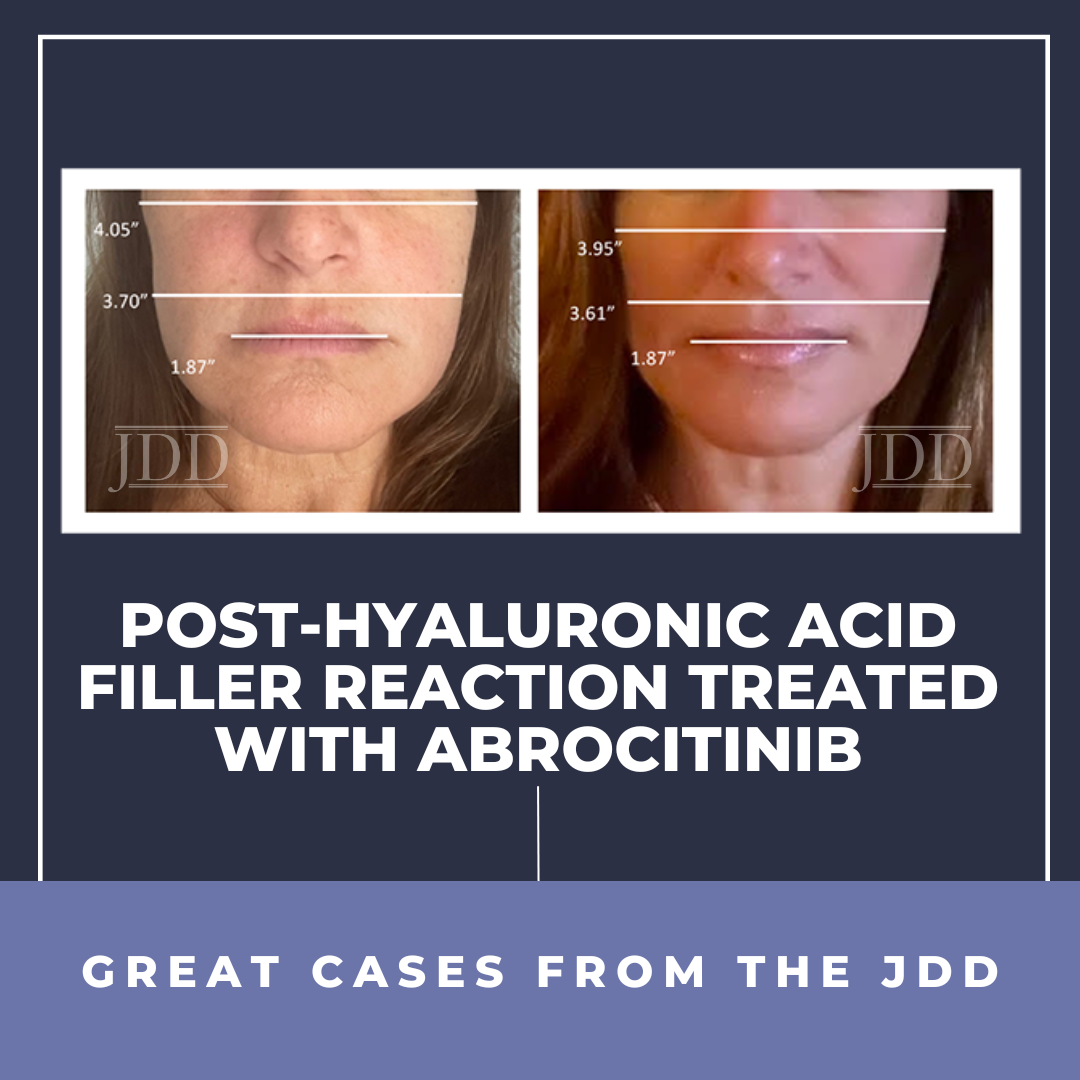 ABSTRACT
Post-hyaluronic acid filler nodules are uncommon, unpredictable complications that present a challenge to clinical therapy. JDD authors Miyahra Haniko P. Lopez MD MBA, Sophie H. Guenin MSc, Jennifer Laborada BS, and Mark G. Lebwohl MD report a case of a female in her fifties who developed edema and nodules 6 weeks after hyaluronic acid (HA) filler injection. After minimal improvement wit …
ABSTRACT
Post-hyaluronic acid filler nodules are uncommon, unpredictable complications that present a challenge to clinical therapy. JDD authors Miyahra Haniko P. Lopez MD MBA, Sophie H. Guenin MSc, Jennifer Laborada BS, and Mark G. Lebwohl MD report a case of a female in her fifties who developed edema and nodules 6 weeks after hyaluronic acid (HA) filler injection. After minimal improvement wit …
 ABSTRACT
Post-hyaluronic acid filler nodules are uncommon, unpredictable complications that present a challenge to clinical therapy. JDD authors Miyahra Haniko P. Lopez MD MBA, Sophie H. Guenin MSc, Jennifer Laborada BS, and Mark G. Lebwohl MD report a case of a female in her fifties who developed edema and nodules 6 weeks after hyaluronic acid (HA) filler injection. After minimal improvement wit …
ABSTRACT
Post-hyaluronic acid filler nodules are uncommon, unpredictable complications that present a challenge to clinical therapy. JDD authors Miyahra Haniko P. Lopez MD MBA, Sophie H. Guenin MSc, Jennifer Laborada BS, and Mark G. Lebwohl MD report a case of a female in her fifties who developed edema and nodules 6 weeks after hyaluronic acid (HA) filler injection. After minimal improvement wit … Continue reading "Post-Hyaluronic Acid Filler Reaction Treated With Abrocitinib: A Case Report"


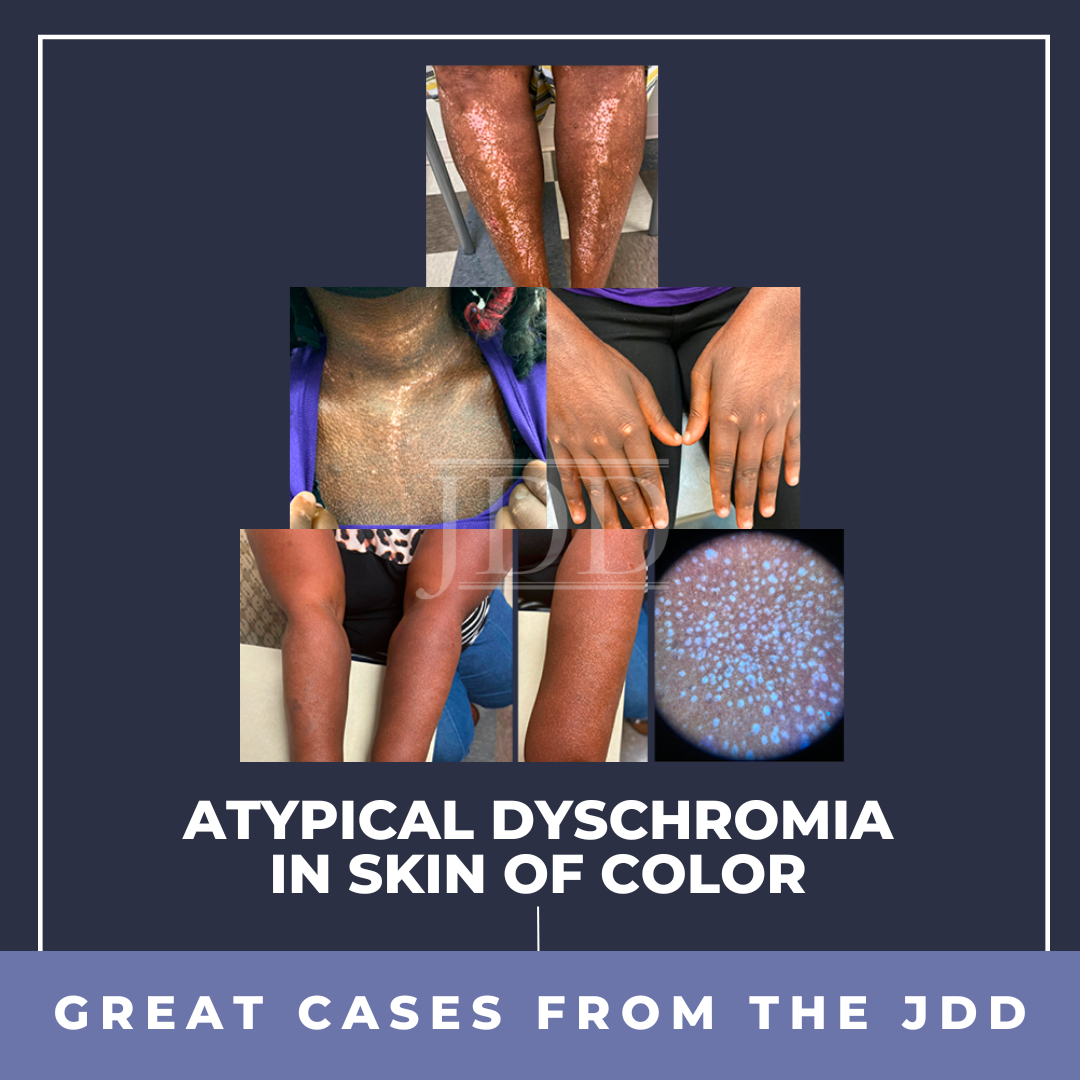 ABSTRACT
Dyschromia is a concern for many patients, especially persons of color. Postinflammatory hypopigmentation and depigmentation can affect all skin types; however, it is more apparent in those with darker skin. Some members of the dermatology community may not comprehensively understand the mechanisms of these reactions and the extent of the psychosocial effect they have on persons of color …
ABSTRACT
Dyschromia is a concern for many patients, especially persons of color. Postinflammatory hypopigmentation and depigmentation can affect all skin types; however, it is more apparent in those with darker skin. Some members of the dermatology community may not comprehensively understand the mechanisms of these reactions and the extent of the psychosocial effect they have on persons of color … 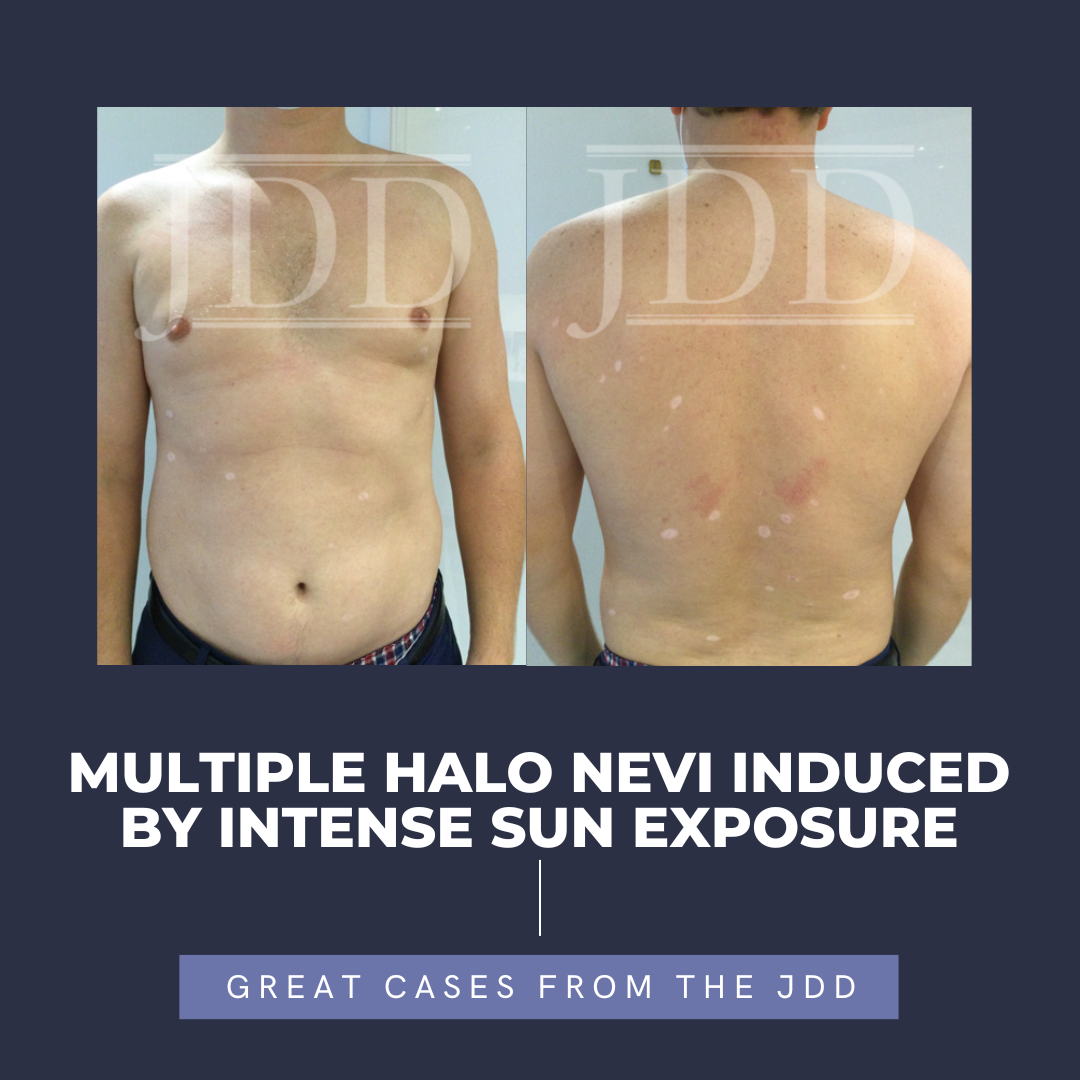 JDD authors present the case of a 38-year-old male who reported to their practice with multiple newly developed halos around 26 existing nevi on his trunk. The halo nevi developed after the patient, who lived in the northeast, spent 2 months on a lake in Alabama, with intense heat and sun exposure. This case is remarkable in that it points to ultraviolet exposure as one instigating factor in the …
JDD authors present the case of a 38-year-old male who reported to their practice with multiple newly developed halos around 26 existing nevi on his trunk. The halo nevi developed after the patient, who lived in the northeast, spent 2 months on a lake in Alabama, with intense heat and sun exposure. This case is remarkable in that it points to ultraviolet exposure as one instigating factor in the … 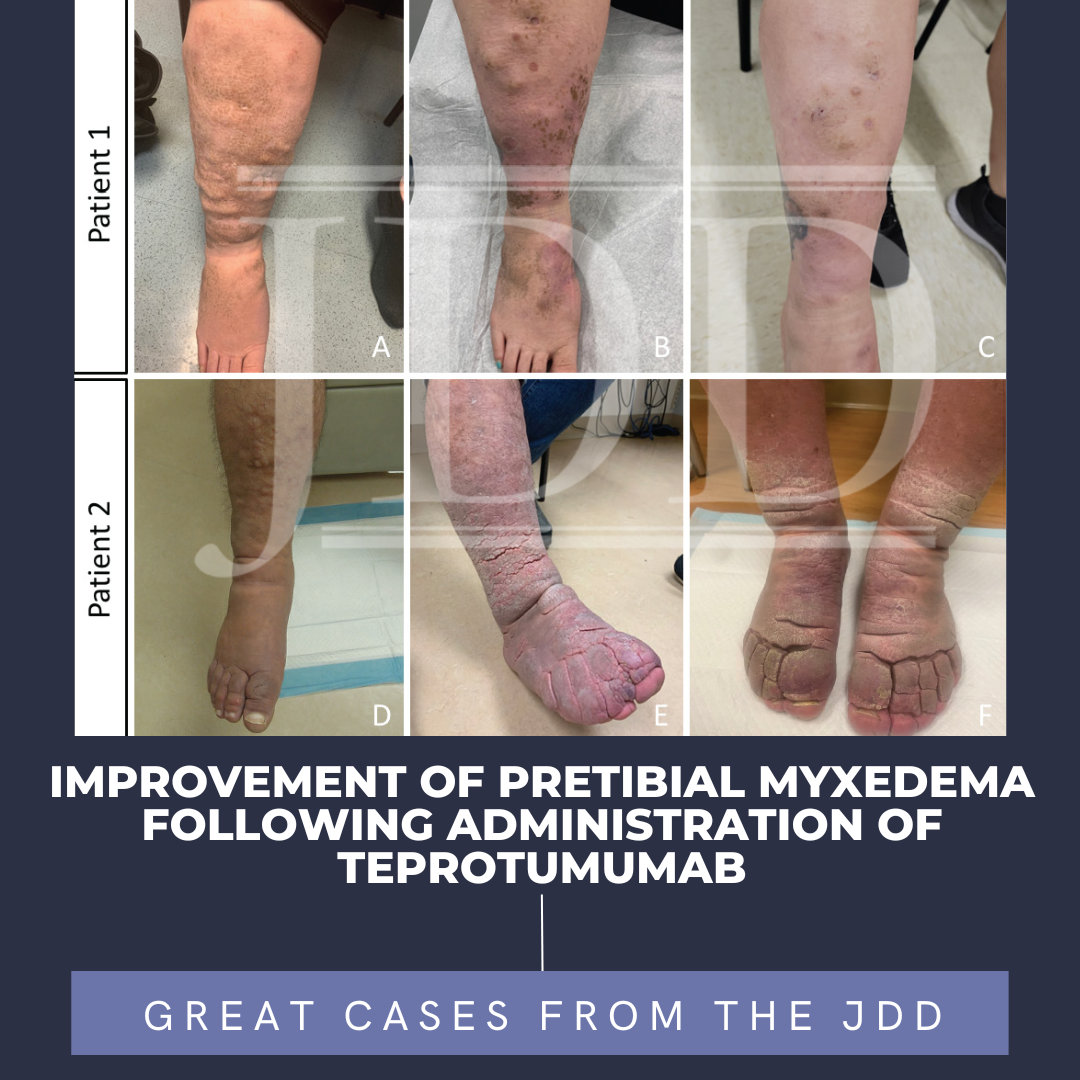 Pretibial myxedema (PTM) is a rare complication of Graves' disease. It is characterized by non-pitting edema with hyperpigmented hyperkeratotic papules and plaques on bilateral lower legs. Effective treatments for patients with PTM are lacking. The etiology of PTM is unknown; however, it may be similar to the mechanism of thyroid-associated ophthalmopathy (TAO). Activated fibroblasts produce infla …
Pretibial myxedema (PTM) is a rare complication of Graves' disease. It is characterized by non-pitting edema with hyperpigmented hyperkeratotic papules and plaques on bilateral lower legs. Effective treatments for patients with PTM are lacking. The etiology of PTM is unknown; however, it may be similar to the mechanism of thyroid-associated ophthalmopathy (TAO). Activated fibroblasts produce infla … 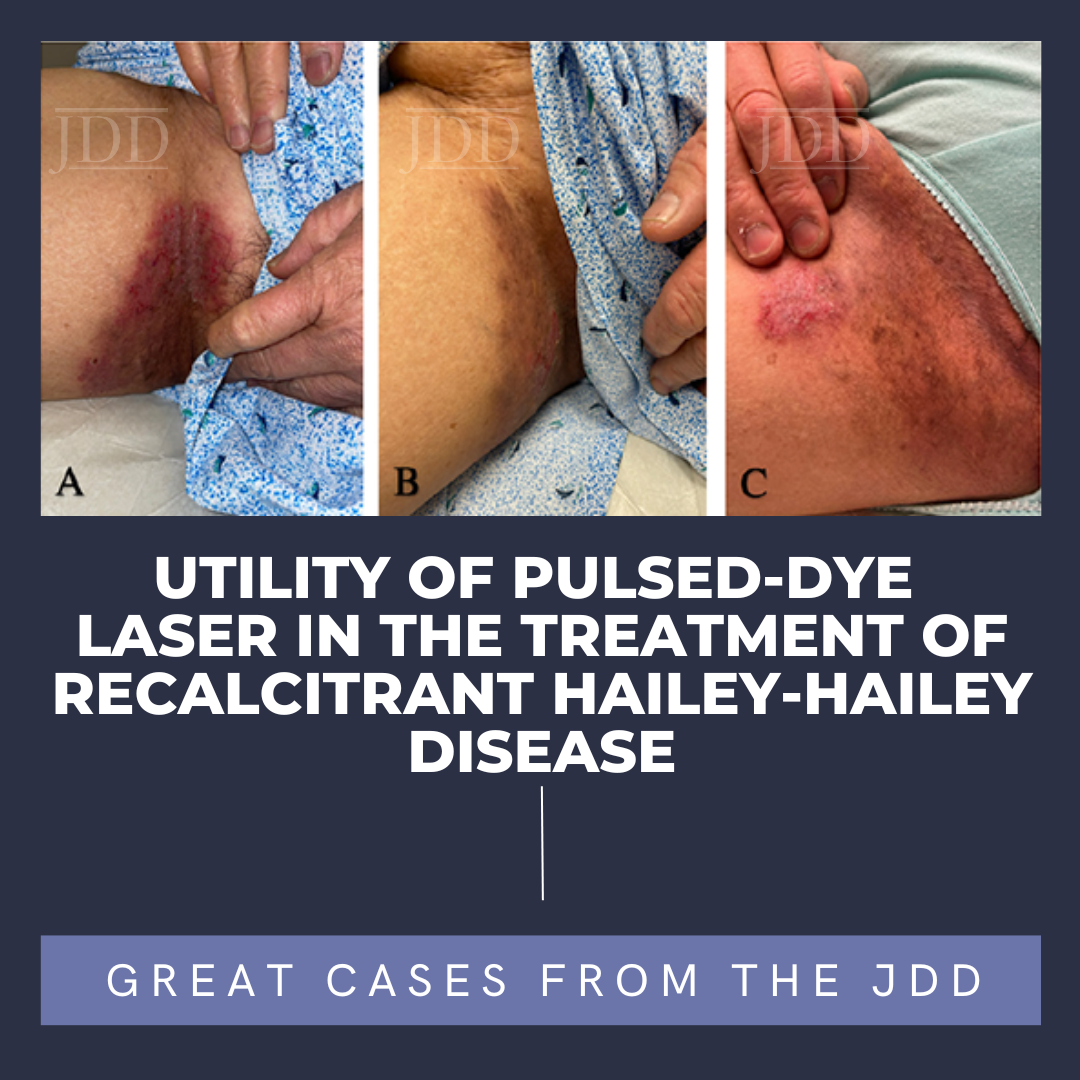 INTRODUCTION
Benign Familial Pemphigus, or Hailey-Hailey Disease (HHD), affects intertriginous areas of the skin causing epidermal blistering and vesicles that coalesce into weeping and crusting plaques.¹
The loss-of-function mutation of the ATP2C1 gene causes a disruption in calcium homeostasis of keratinocytes. The resulting dysfunction in desmosomes and cell-cell adhesion causes acanthol …
INTRODUCTION
Benign Familial Pemphigus, or Hailey-Hailey Disease (HHD), affects intertriginous areas of the skin causing epidermal blistering and vesicles that coalesce into weeping and crusting plaques.¹
The loss-of-function mutation of the ATP2C1 gene causes a disruption in calcium homeostasis of keratinocytes. The resulting dysfunction in desmosomes and cell-cell adhesion causes acanthol …